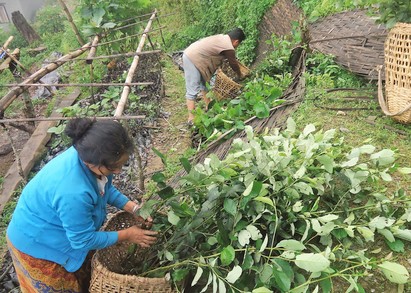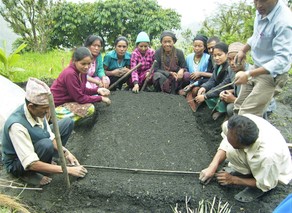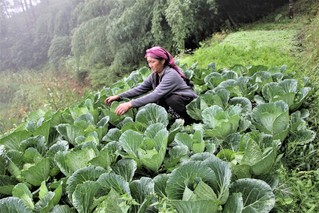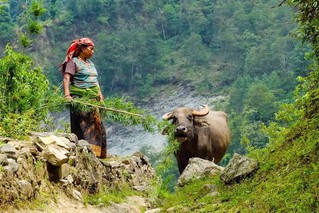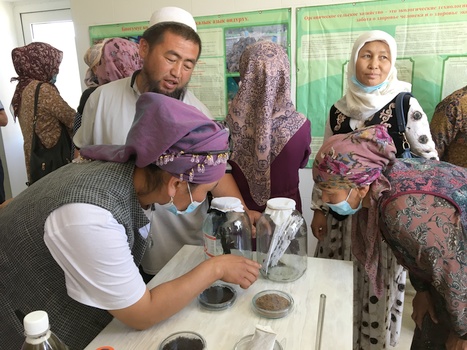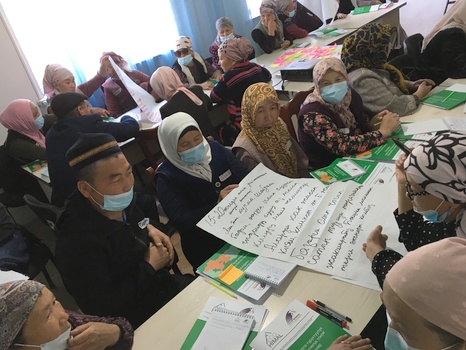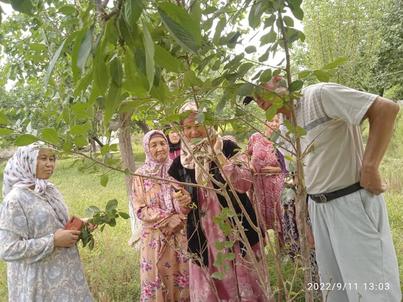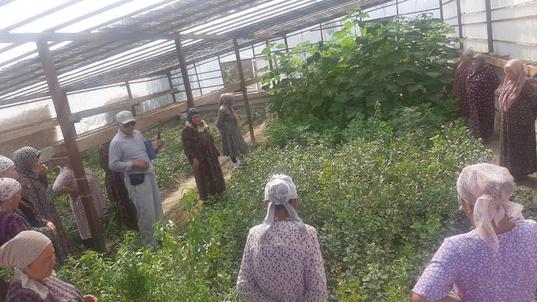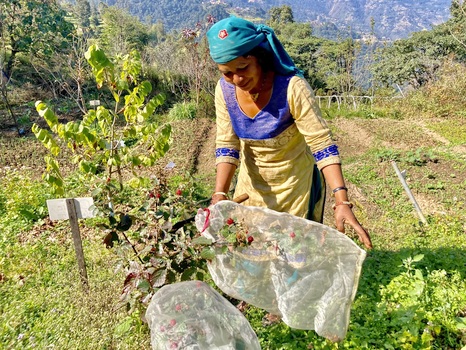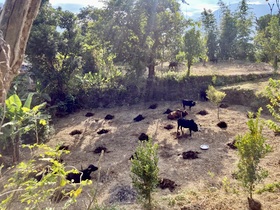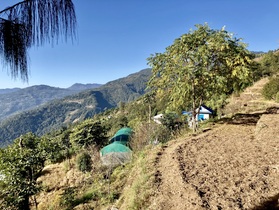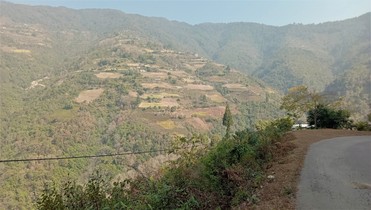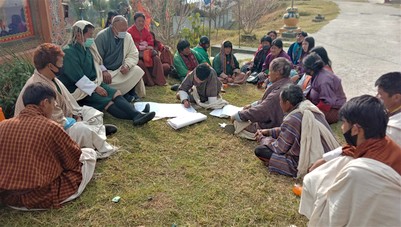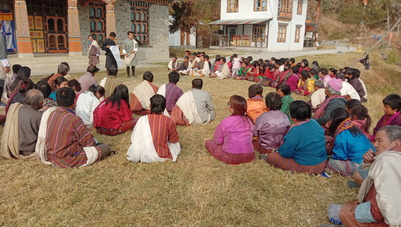Network of agroforestry resource centers
Since its inception in 1992, EcoHimal has been committed to combating climate change by adapting local agriculture to the challenges. We seek to improve the resilience of rural smallholder farmers through various tools and techniques, such as community-managed agroforestry and resource centres, multi-layered cultivation and bio-intensive plantation technologies, promotion of organic vegetable production in locally constructed greenhouses, rainwater harvesting and the cultivation of trees to protect slopes.
The application of a mixed, multi-layered tree planting system on vulnerable mountain slopes contributes to climate protection and soil conservation. It improves biodiversity and resilience, minimises the risk of crop failure, promotes creative land use, saves energy and resources, and improves carbon sequestration. It also provides short- and long-term income opportunities, as well as many other benefits such as shade, firewood, leaves for mulch and compost, fodder and habitat protection for wildlife.
In the long term, the introduction of versatile, multi-layered cropping systems leads to optimised use of land resources and reduced risk of crop failure. It empowers marginalised groups, including women and people with disabilities, and provides alternative livelihood opportunities. It mitigates the effects of climate change by supporting afforestation and environmental protection through capacity building. The introduction of new crops into the multi-layered system can lead to significant increases in income once the fruit and nut trees mature. All this should be anchored through the establishment and institutionalisation of women's and farmers' groups, nurseries, cooperatives and outlets.
A network of such centres is currently being established and promoted through a number of projects. In Nepal, this is the case in Solukhumbu, Khotang, Khavrepalanchok, Magdi, Lamjung, Sindhupalchok (Duguna Ghadi) Kalikot and Karnali, and a similar project is being implemented in Kara-Bak, Batken district, in southern Kyrgyzstan. The projects have different durations, but should in any case stand on their own financial feet by 2025 at the latest.
Family-run Agroforestry in Kara-Bak, Kyrgyzstan
Batken is one of the remote, mountainous border districts in Kyrgyzstan. It borders Tajikistan to the southwest and north and Uzbekistan to the northeast. Agriculture is crucial for the livelihood and well-being of the entire rural population.
The Family Farming Agroforestry for a Sustainable Future (2020-2023) project is being implemented in Kara-Bak Aiyl Aimak (local government) of Batken district in cooperation with the Kyrgyz non-governmental organisation Agents of Changes. Kara-Bak Aiyl Aimak was selected because of its large proportion of poor and socially disadvantaged people, its high population density and its geographical remoteness. The area is prone to cross-border conflicts, has limited natural resources, is plagued by food insecurity and shortages, suffers from high unemployment and consequently a high rate of migration. Approximately 18,000 inhabitants live in 4,580 households in the various municipalities. The extreme poverty rate is 40.7%, the highest of all rural districts in Batken.
Promoting Agroforestry for Climate Change Adaptation in Nepal and Bhutan
This project is a further development of the successful Agroforest Resource Centre and Sustainable Tree Crops program of EcoHimal. EcoHimal is replicating the AFRC model, benefited at least 50,000 farmers in unreached areas. This is proven to work economically, ecologically and as a climate change adaptation and women empowerment strategy. New AFRCs in Kalikot district, Nepal, and in three districts in Bhutan (Dagana, Trashigang, Trashi Yangtse) will function as a hub for education, resources and training, enabling farmers and subsequent generations to develop skills needed to significantly diversify their traditional farming systems, and to farm sustainably in ways that combat climate change, promote biodiversity, and generate income.
The project is designed for three years (2023-2026) and sponsored by Third Millennium Foundation, Hamasil Foundation, Tarayana Foundation and the Glacier Trust.
Kontakt
EcoHimal Austria Gesellschaft für Zusammenarbeit Alpen-Himalaya
Hofhaymer Allee 11/17
5020 Salzburg
E-Mail: office@ecohimal.org
T: +43 662 829492
ZVR Zahl: 886266575



